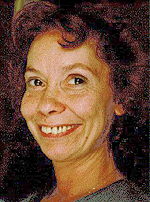 It never ceases to amaze me that most all of my heroes (and I have many) have one great thing in common: they are self-educated men and women, and they never stopped learning. Usually they were taught to read when young, some went through formal training at schools, a few attended colleges — but all of them at one time or another were voracious consumers of books.
It never ceases to amaze me that most all of my heroes (and I have many) have one great thing in common: they are self-educated men and women, and they never stopped learning. Usually they were taught to read when young, some went through formal training at schools, a few attended colleges — but all of them at one time or another were voracious consumers of books.
George Mason, for instance, received little formal schooling, but was lucky enough to be turned loose in the 1,500 volume library of his uncle John Mercer. (At that time, books were scarce and many families only owned a Bible, if that — 1,500 books was a treasure trove!) Or Benjamin Disraeli — he read his way through his father’s library and that was his education. Whatever I might think of his politics (or his atrocious novels), he was an intelligent and witty man. Thomas Paine, the finest writer of our Revolution, educated himself — read his Common Sense today, and witness his sharp, clear prose and stirring phrases. Thomas Jefferson was formally educated, attending William and Mary College, but if ever a man educated himself, and continually at that, it was Jefferson. Patrick Henry received his education from his father — but read far and wide.
Ben Franklin was sent to school by his father, who wanted his son to be a minister, and Ben easily mastered reading and writing. Strangely enough, like Einstein flunking his mathematics exams, Ben couldn’t grasp arithmetic and so was let go from the school. America lost a minister (which is probably a good thing, since he had an eye for the ladies), but that didn’t stop this original American from becoming an inventor, a scientist, a printer, a writer, a humorist, and masterful American statesman in a time of astounding political thinkers. Frederick Douglass was taught his letters as a slave, but taught himself to write and became one of the foremost orators of his day. H.L. Mencken was conventionally educated, although it sure didn’t harm him any — besides all of his prodigious journalistic writings, he also wrote those wonderful books on American language.
And this, it seems to me, is the solution to what is called "public education," one of the saddest jokes of our time. It isn’t hard to teach children to read, nor is it difficult to instill in them a love of reading. My father, not trained as a teacher, and a very impatient man, taught me to read with great ease, probably using phonics. Mothers and fathers teach children to read all the time. I honestly don’t see how people can fail in teaching children to read, but they sure do in the public schools.
Look at the successes of home-schooled children. They can actually spell. They can actually read, and no doubt at levels far beyond the paltry levels achieved (or not) in the public schools. Private school children do well too. Frankly, it simply is not such a difficult proposition — in fact, it is easy.
But public school children are not even taught to read! At huge taxpayer expense they are taught to look at words and guess what they mean. Can you imagine anything more inane than that? Yo! Public School Teacher — look at this word and guess what it means: STUPID. It isn’t that these children are intellectually deficient — but they are kept ignorant, and it sure looks to me like it is entirely deliberate. Or maybe not. From what I’ve read of the huge numbers of teachers who can barely pass their teacher exams, perhaps they can’t read either.
So here’s what we do: step one, teach the kids to read. Step two, set ’em loose in libraries. My guess is the quality of real education would go up by 75%, if not higher! And the children might even be able to spell, and speak complete grammatical sentences without a single use of the word "like," unlike most college students today.
We might even end up with another crop of self-taught geniuses!
Patricia Neill is managing editor of a scholarly journal on the life and work of William Blake, the 18th-century artist and poet.




